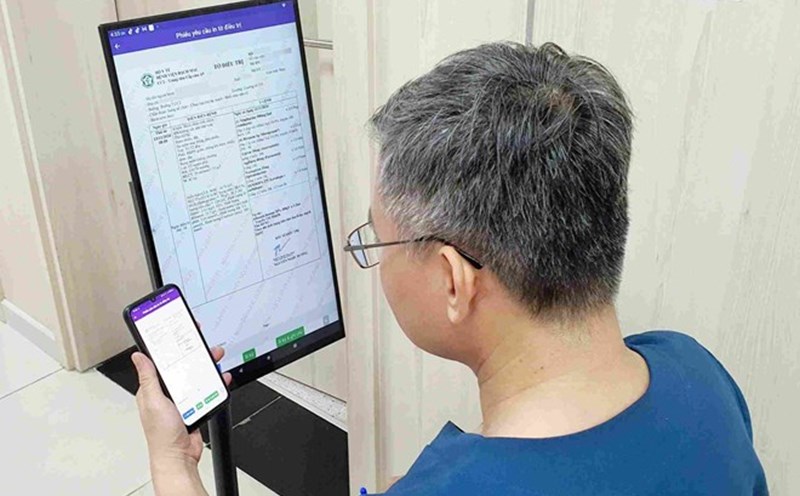Hospitals speed up progress to prescribe electronic drugs
The implementation of compulsory electronic prescription is considered an important shift in drug use management in the community.
For example, at Go Vap Hospital in Ho Chi Minh City, to meet the requirements of implementing electronic prescriptions, the hospital is urgently completing the final steps to deploy electronic medical records, aiming for the goal of comprehensively digitizing medical examination and treatment activities in accordance with the direction of the Ho Chi Minh City Department of Health. Dr. Tran Phu Manh Sieu - Director of Go Vap Hospital said that the unit has completed the survey of information technology infrastructure, approved the estimate and is conducting bidding to select a software supplier. This work is expected to be completed in July, and the installation and training steps will be implemented immediately after that. The goal is to complete the entire electronic medical record system by September 2025.
Currently, the hospital's technical infrastructure is ready with a stable network connection system, and professional software such as imaging diagnosis and testing also have a foundation. The remaining task is to integrate data into the electronic medical record system (HIS), connect communication software and organize training for medical staff. According to Dr. Manh Sieu, this is the final stage in the implementation roadmap, and the hospital can completely meet the set schedule.
The use of electronic medical records is expected to create clear changes in hospital management and operation. All medical examination and treatment, prescription, treatment, use of consumables, chemicals, testing, etc. are updated and controlled on the software. This not only helps reduce the amount of handwritten documents but also increases transparency, making it easier for hospital leaders to monitor, inspect and operate more effectively. The system also allows comparing the amount of drugs - supplies that have been released from the warehouse with actual treatment, monitoring hospital fees for each patient, and synthesizing the finances of the entire hospital in real time.
However, Dr. Manh Sieu also admitted that there will be certain difficulties in the initial stage, mainly due to the fact that medical staff are not used to input data and use the new system. Initial problems in data synchronization and inconsistent operations are inevitable. However, according to the experience of previously deployed hospitals, this obstacle will soon be overcome after 1-2 months if there is organized proper training and close coordination between departments.
Increase skills for electronic prescriptions to operate smoothly
According to Mr. Huynh Ngoc Duong - Vice Chairman of the Ho Chi Minh City Pharmacy Association, the current abuse of antibiotics and prescription drugs in the community is partly due to the fact that people can easily buy drugs without a prescription.
In Vietnam, people have the habit of buying medicine at pharmacies before going to medical facilities. When the condition does not improve, you should see a doctor, causing treatment delays and difficulties in controlling resistance. Therefore, the application of electronic prescriptions is a necessary step and cannot be delayed.
For electronic prescriptions to truly come into life, pharmacies need to be equipped with management software capable of connecting to the National Pharmaceutical Data Portal. However, Mr. Duong said that there are still many pharmacies, especially in the provinces, that have not implemented this connection. Some places have been connected but do not have enough electronic prescriptions from hospitals or clinics sent back for tracing, causing the operating system to not be smooth.
In addition, according to Mr. Duong, it is necessary to increase digital skills training for pharmacists so that they clearly understand how to receive and process electronic prescriptions and interact with the data system. These knowledge update programs are being actively implemented by the Ho Chi Minh City Pharmacy Association.
In the long term, Mr. Duong believes that when electronic prescriptions are strictly implemented, the management of the path of drugs will be more transparent, helping to trace and control drug abuse, especially antibiotics.











